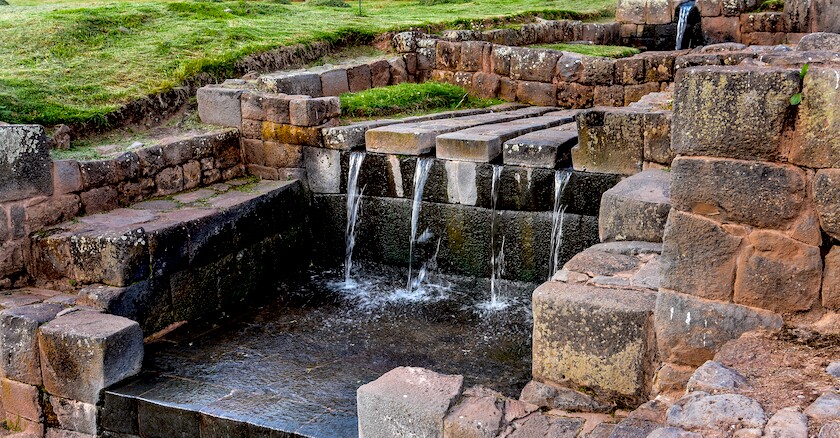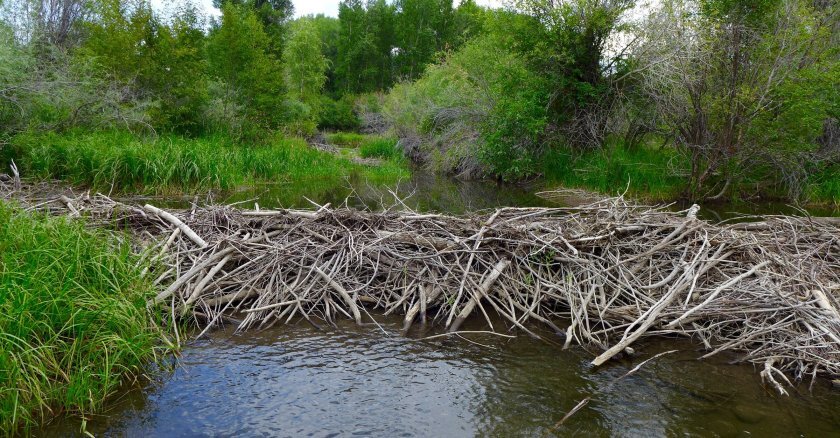In Brief:
“The more people know about water in general, the more likely they are to care about how water is managed and treated, and the more likely they are to be willing to protect those water resources that are local,” says Peter Gleick.
One of the world’s leading water scientists, and a 2003 MacArthur Fellow, Gleick was recognized by the Carl Sagan Prize for Science Popularization in 2018 for his decades of work to bring about such understanding.
It would be nice if we didn't have to wait for a crisis to address our problems...
Peter Gleick
Following this “First Age,” humans worked to harness water’s life-giving properties and power, endured conflicts over access and battled water-borne diseases. Toward the end of this period, the extent to which water systems had been damaged and overstressed became evident. A new challenge to water security emerged: climate change.
This Second Age is coming to an end, Gleick writes. “The world as a whole must make a transition away from its current unsustainable path and forge a new future — a sustainable Third Age of Water — that tackles the adverse consequences that threaten to overwhelm the positive technological and scientific advances of the past.”
Gleick spoke to Governing about some of the book’s lessons for state and local government. The interview was edited for length and clarity.
Governing: You express optimism about a sustainable water future because the strategies and technology already exist to make it possible. Are people in government aware of these tools?
Peter Gleick: No. I don't think there's enough knowledge, awareness and commitment.
There are really good water utilities and agencies. There are leaders in local, state and federal government that understand and care about water issues. But that's uncommon.
If you look at opinion polls about the environment, going back decades, water is always at the top. It's the one thing people on the left and the right of the political spectrum all agree about. That's an opportunity for improving the way we govern around our water resources.
Governing: How important are local governments?

(PublicAffairs)
Peter Gleick: Many, many water issues are purely local. It's local water utilities, local water infrastructure. People can get involved at this level. They can run for water boards or vote for candidates who understand water and environmental issues.
Governing: You’ve visited and consulted projects at the leading edge of water sustainability all around the world. Are there common denominators in their success?
Peter Gleick: Leadership is key. It takes great leaders to change our policies, to communicate issues and solutions and to actually implement them.
A lot of the places where water has been addressed directly have not only had great leadership, but serious problems. Crises do drive advances.
It would be nice if we didn't have to wait for a crisis to address our problems, whether they're water problems or other problems.
Governing: You write about the importance of doing more to care for and preserve natural systems. What’s it going to take to make this as much of a priority as meeting demand for water?
Peter Gleick: It's an incremental process. We absolutely do not pay enough attention, or understand enough about, the importance of natural ecosystems and protecting the environment for our own health and well-being.
It’s also true that we're in a transition, beginning to acknowledge the damage we've caused by ignoring the environment. We're starting to restore ecosystems. We're starting to take down the worst of the dams that block our rivers and kill our fish. We're starting to guarantee water for the environment.
We are moving in the right direction. We have to figure out how to move faster.
Governing: We hear a lot about problems in the West, but is there any part of America that shouldn't be thinking hard about its water future?
Peter Gleick: No. Not everybody faces the same challenges, but we all do face challenges. If climate change gets worse and worse, our water issues will get more and more important and more difficult to deal with.
Nobody should take water for granted. Nobody should assume that the safe, clean water that's coming out of our taps will always be safe and clean, because we've seen examples where neglect, inadequate investment and bad decisions have caused problems.
Governing: Will profit from technologies and services be enough to drive progress toward sustainable water practices, or will we have to see the economics of the transition in a different way?
Peter Gleick: Both are possible and necessary. The idea that unlimited consumption has no impact on the environment is not true. We can rethink economics in a way that acknowledges the advantages of a healthy environment.
There's a chapter in the book about ecological economics — again, we're moving in the right direction, but too slowly.
Governing: Are there state or local efforts you would point to as good examples?
Peter Gleick: Orange County [Calif.] has had one of the largest and earliest wastewater treatment and reuse systems. California recycles about 18 percent of its wastewater now, and we're trying to double or maybe triple that over time. That’s an incredibly important new source of water that doesn't require draining our aquifers and our rivers.

(Curtis Lomax)
What Singapore has done in terms of wastewater treatment and recycling has been remarkable. They coupled it with a very, very effective public education campaign.
The technology coming out of Israel for improving our ability to grow more food with less water has been very influential around the world. There are lots of examples of dams being removed around the United States, restoring river flows and fish habitats.
Governing: What kinds of stakeholders should be working on water together?
Peter Gleick: Because water cuts across so many different fields and boundaries, there needs to be a much more integrated approach. Our water utilities and our energy utilities ought to be talking together. It takes water to produce energy, and it takes energy to produce, clean and use our water. If we managed water and energy together, we could make advances much more quickly.
The same is true in agriculture. Water people ought to work with farmers for the benefit of both sectors to improve water quality, reliability, restore ecosystems and to grow more food with less water.
Governing: A future of wars over water isn’t inevitable, then?
Peter Gleick: A bad future is possible, a future we wouldn't want if we had a choice.
The whole point is that we have a choice. The best way to put it is that the faster we move, the less the pain.
We can't just leave this for our elected officials and our utilities. We ought to pressure our governance systems to do more, but we can also do things as individuals. We can change the way we use water in our homes and our businesses. We can use water more efficiently. We can change our landscapes.
We can get involved in the process as individuals. That's all part of governance and is often overlooked. Don't just look over the fence.












